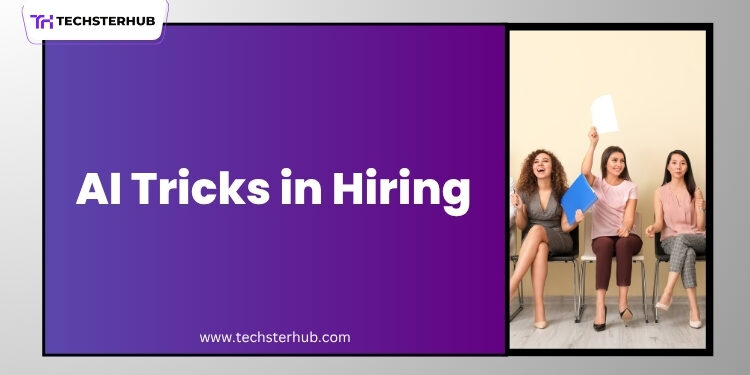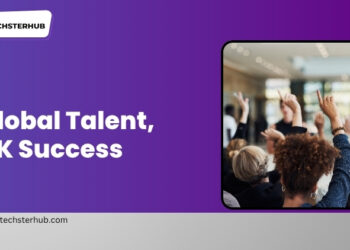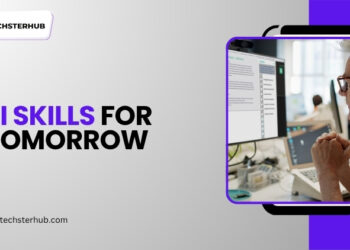Introduction
Artificial intelligence has revolutionized hiring in every industry, and has made it possible to use AI programs to automate resumes, match jobs to candidates, and even predict potential predictions for candidates. Yet it is the same technology that powers modern recruitment that is giving job seekers powerful weapons to cheat the system via AI job applications.
From the use of AI-generated resumes to algorithm-based responses during interviews, there is an increasing number of job seekers using advanced technology to beat the bots.
This article looks at the impact AI applications are having on recruitment – often unethically – and what specific actions employers and HR professionals can take to safeguard the integrity of their hiring process.
How AI Job Applications Have Changed Over Time
1. AI-Driven Résumé Builders
Making the CV killer: AI-enabled resume platforms now write customized CVs in minutes. They parse job descriptions, mine for keywords crucial to the job and the insert exact keywords that applicant tracking systems (ATS) prioritise. Whilst these tools can help candidates to shine a light on real experience, they also allow it to be easy to blow your own trumpet or to create cookie-cutter resumes that are optimised simply for the algorithms.
2. Generative Cover Letters and portfolios
A company’s style, mission, and values are all reflected in the cover letter written by Generative AI. So, candidates can input a job listing into a big language model and get an impeccably worded letter right away. They encounter job listings that require them to convey an individual’s portfolio and, in fact, AI job applications have become dialectical exorcisms of argumentation instead of sincerity.
3. AI Interview Coaches and Deepfake Technology
Asynchronous and live video interviews are usually conducted to hire candidates from other parts of the country. New AI “interview trainers” provide prompt answers and suggestions. Even more worrisome is the possibility that deepfake technology will subtly manipulate a candidate’s appearance or voice during a live video call – further pushing the boundary between reality and AI-enhanced performance.
Why Job Seekers Resort to AI Job Applications
- Hyper-Competitive Markets: With thousands of applicants for a single role, candidates see algorithmic optimisation as essential for visibility.
- Perceived Bias Reduction: Some argue that AI levels the playing field for those who struggle with traditional self-presentation, such as non-native speakers or neurodiverse candidates.
- Low Barriers to Entry: Many AI tools are free or inexpensive, making advanced capabilities accessible to anyone.
While this kind of motivation is understandable, it does raise quite a few questions about honesty and long-term career fit.
Risks to Employers and Recruiters
Erosion of Trust
It will also be tough for hiring managers to tell the difference between skill and polished. This can lead to a distrust of the candidate and of the recruitment process.
Skills Mismatch
Applicants whose skills are inflated or falsified through AI may be hired for a job that they are incapable of doing, causing them to be mis-hired, quit, and then go through retraining at great cost.
Security and Privacy
As these services often require the sharing of sensitive personal information to third-party platforms, there are significant privacy and cybersecurity implications when creating deepfakes for interviews and using one’s resume to generate them.
The Inferences for Recruitment Overall
Recruiter vs. candidate/employer technology arms race Many organizations already use AI to screen applications; screening for deceptive AI job applications would require even more advanced systems. Some new solutions are emerging, such as identity-verification software, plagiarism detectors, and behavioural analytics, but they have new ethical implications and may introduce bias.
Strategies to Protect the Hiring Process
Human-in-the-Loop Hiring
Automation helps to improve efficiency, at the same time, some final decisions require taking human thoughts. AI screening should be combined with a structured human interview and hands-on tasks that will show true competence.
Skills-Based Evaluations
Portfolios, Individualized Projects, or Optional Live Problem-Solving Exercises: Regardless of how impressive an AI job application looks, such exercises provide an honest insight into the candidate’s skills and true potential for success.
Transparent Policies
Employers should clearly explain how AI is used in the recruitment process and what information is appropriate for candidates. Transparency provides a way in which expectations can be set, and unethical behaviour discouraged.
Ethical Verification
AI-driven tools for detecting identity and content that have been generated by AI, and for verifying references can do a lot for this – but only if used respectfully and fairly in authority.
Ethical use of AI for Jobseekers
AI need not be deceptive. Candidates can use it to:
- Improve grammar and clarity.
- Optimise formatting for ATS compatibility.
- Practise interview questions to build confidence.
The key is honesty. AI should help a candidate provide their actual experience and nothing fabricated. Trusted method: Only the most transparent approach can be used to ensure artificial intelligence job applications remain an empowering tool for better representation and not a tool for misuse and misrepresentation.
Policy and Regulation
- EU AI Act: Classifies recruitment systems as high-risk, demanding transparency and human oversight.
- UK Guidance: The Information Commissioner’s Office stresses fairness and data-privacy compliance when processing AI-driven hiring data.
As laws develop, companies need to keep up to ensure compliance with existing laws while still being able to use AI in a responsible manner.
Future Outlook
Hybrid Workflows
The most sustainable approach is a hybrid model in which machines are tasked with repeatable jobs that benefit from an advanced algorithm – scheduling and basic triage – while humans are used for strategy and cultural fit analysis.
AI Literacy
Consequently, both recruiters and applicants need to become AI-literate, that is, to be able to understand how an algorithm functions, and how to use them for ethical purposes.
Ethical AI as a Competitive Edge
Organisations that adopt a practice of hiring based on competence in the absence of bias will build a stronger employer branding and also attract better candidates.
Conclusion
Applications for AI job applications have turned into a double-edged sword. While they can help candidates to put the best of themselves forward to prospective employers, they also lend themselves to deceitful practices that destroy trust and result in higher hiring risk. Employers need to find a balance between technology and human judgment, use strong verification measures, and create transparency.
For jobseekers, the way forward is clear – Artificial Intelligence as assistant, not fabricator. The future of hiring is for those (candidates and companies alike) who embrace AI responsibly and ethically.











